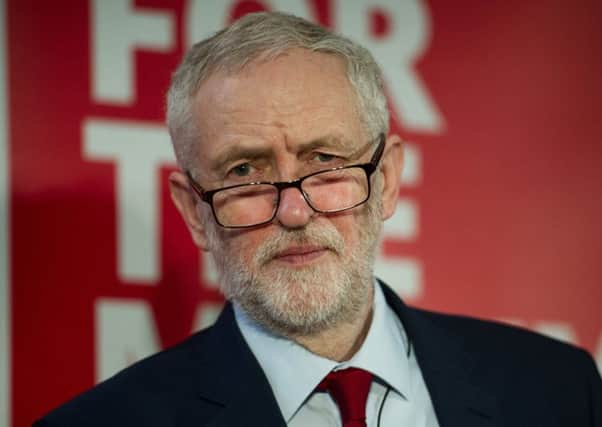Ian Swanson: Corbyn says no, but Brexit round two is looming


As the Brexit negotiations continue and the deadline for a deal draws ever nearer, the poll suggests voters are becoming more concerned about the impact of leaving, with 43 per cent worried it will have a negative effect on the UK economy and a narrow majority believing it will have a negative impact on the “British way of life”.
But, at the weekend, Jeremy Corbyn ruled out Labour support for another referendum. “The referendum gave us the result it did,” he said. “We wanted to remain and reform, but that ship has sailed. We’re not asking for a second referendum.”
Advertisement
Hide AdAdvertisement
Hide AdHe said what Labour had demanded was a meaningful vote in parliament at the end of the process.
This is despite the poll’s finding that 65 per cent of Labour backers want the public to have the final say on leaving once negotiations are complete, compared with 19 per cent who oppose the idea.
At last year’s general election, Labour won votes from both Leave and Remain voters and the party is doing its best to maintain its appeal to both sides in the debate.
But given its apparent ambiguity on issues like the single market and the customs union, it does seem strange that Mr Corbyn is so categorical on ruling out a referendum on the Brexit deal before the UK finally leaves.
Advertisement
Hide AdAdvertisement
Hide AdIn Scotland, Labour’s reluctance to take a tougher stance against Brexit is even more puzzling since 62 per cent of Scots, including the majority of Labour supporters, voted Remain in the 2016 referendum.
First Minister Nicola Sturgeon did not hold back when she challenged Scottish Labour leader Richard Leonard on the issue, labelling his stance “feeble” and claiming Labour was “effectively backing the Tories’ extreme Brexit plans”. She warned that a hard Brexit would cost thousands of jobs and do serious damage to the economy.
Nevertheless, Labour does have genuine concerns about remaining part of the single market, fearing EU rules could frustrate a future Labour government’s ability to nationalise industries like the railways or provide state support to certain sectors when necessary. Meanwhile, the Tory infighting over Brexit continues apace, with Leave supporters pressing Theresa May to sack Chancellor Philip Hammond for claiming that leaving the EU would produce only “very modest” changes.
Arch-Brexiteer Jacob Rees-Mogg accused Mr Hammond of going against government policy, the Conservative manifesto and the Prime Minister’s speeches on Europe.
Advertisement
Hide AdAdvertisement
Hide AdAnd former Northern Ireland Secretary Theresa Villiers has accused Mrs May of a “dilution” of Brexit and warned it might end up with a deal which “keeps us in the EU in all but name”.
More than 18 months on from the referendum, Brexit is still a divisive issue and whatever deal is reached will also split opinion.
In calling the referendum David Cameron made no provision for what happened next in event of a Leave vote – because he never expected one.
But a referendum on the deal – allowing voters the final say – looks a sensible way to progress.